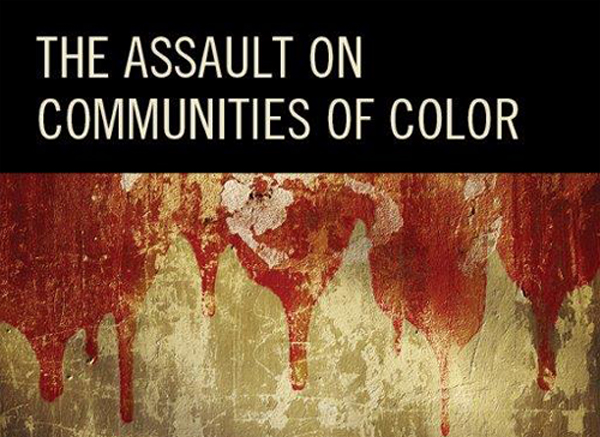Nicholas Hartlep has no illusions that his latest book will solve racism in America.
Hartlep is co-editor of The Assault on Communities of Color: Exploring the Realities of Race-Based Violence set for release in June through Roman & Littlefield publishers. A collection of essays from leading scholars across the nation, Hartlep calls the book a platform for voices of a new movement forming in the wake of “modern-day lynchings” of black men such as Trayvon Martin, Eric Gardner, and Michael Brown.
“No other racial group has been more hated in our country than blacks. Our institutional polices reflect that. We’re conditioned to see blacks as inferior,” said Hartlep, an assistant professor of educational foundations at Illinois State University.
Hartlep and co-editor Kenneth Fasching-Varner received more than 140 submissions for the book. The final product contains 57 works with titles such as “We Can’t Breathe: The Impacts of Police Brutality on Women of Color” and “Grey Hoodies, Baggy Jeans, and Brown Skin: The Violence against Black Males via Signs and Signifiers.”
What sets the book apart is accessibility, said Hartlep. “There is no academic jargon, no citations. These are powerful narratives from real human beings.” He noted those who contributed reflect a growing movement rejecting violence against communities of color as simply tragic incidents. Instead, they are seen as evidence of a racist system that has a chokehold on America.
“With race-based violence, you think of images of blood or bludgeoning, and that is what we see in the news,” said Hartlep. “But race-based violence is much more quiet and insidious—damaging psychologically and spiritually. The realities are very complex and nuanced.”
The book translates to the courses Hartlep teaches on the historical, cultural, and social foundations of education. “We begin from a place that is learned—part of a learned society that is tethered to white supremacy,” he said. Recently, Hartlep showed one of his classes a video that went viral of a Baltimore mother repeatedly slapping her son for taking part in the riots.
“A lot of the students cheered when I showed the video,” said Hartlep. “When I asked why, they said, ‘She is trying to keep him off the streets and out of gangs,’ or ‘She’s a single mother trying to help her son.’ I looked at them and said, ‘Where are you getting gangs? Where are you getting that the mom is single? These are assumptions you are making because of the stereotypes a white-dominated society places on people of color.’ We dehumanize, we criminalize.”
Pre-sales of the book are already beyond publisher expectations, and are on backorder. Yet Hartlep said the book is not meant to be a guide for the next step in race relations, but a means of expression. “This effort is not to help oppressors understand their oppression. It is a place for the voices of communities of color—voices that come from a place of pain,” he said.
“Let’s be honest. The book will not solve the problem of racism,” said Hartlep. “But it can give us hope for a time when communities of color will not be assaulted. People are angry. If you are not angry, you are not noticing the race-based violence.”
Hartlep can be reached via MediaRelations@IllinoisState.edu.


